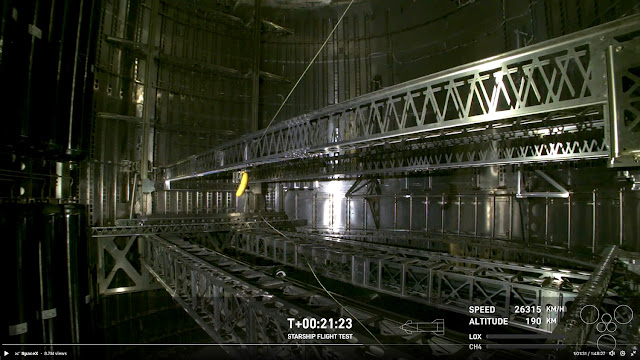It has been a 3 sigma, maybe 4 to 6, kind of day. By which I mean nowhere near normal. So a couple of little things that I thought were interesting/cool to pass on.
Rocket Lab sets a novel record
At least, I think it's novel.
Two Electron rockets took flight Sunday, one from New Zealand’s Mahia Peninsula and the other from Wallops Island, Virginia, making Rocket Lab the first commercial space company to launch from two different hemispheres in a 24-hour period, Payload reports.
I question whether it's a record because there's no mention of how many companies can launch in two different hemispheres. Maybe it's a record because nobody else can even try to do it. BTW, the Sunday being referred to was the 26th.
SpaceX sets a new company record for turnaround time of a booster between flights
Less than 14 days after its previous flight, a Falcon 9 booster took off again from Florida's Space Coast early Monday to haul 23 more Starlink internet satellites into orbit, Spaceflight Now reports. The booster, numbered B1080 in SpaceX's fleet of reusable rockets, made its 13th trip to space before landing on SpaceX's floating drone ship in the Atlantic Ocean. The launch marked a turnaround of 13 days, 12 hours, and 44 minutes from this booster's previous launch November 11, also with a batch of Starlink satellites. The previous record turnaround time between flights of the same Falcon 9 booster was 21 days.
... on the way to another milestone/record ...
400 and still going ... SpaceX's launch prior to this one was on Saturday night, when a Falcon 9 carried a set of Starlinks aloft from Vandenberg Space Force Base, California. The flight Saturday night [the 23rd of November - SiG] was the 400th launch of a Falcon 9 rocket since 2010, and SpaceX's 100th launch from the West Coast.
This morning had two Falcon 9 launches within just over 3 hours of each other; the first was a Starlink mission for SLC-40 on Cape Canaveral SFS, at 12:00 AM on the 30th. The second was the NROL-126 mission which also carried 20 Starlink satellites from Space Launch Complex 4 East (SLC-4E) at Vandenberg Space Force Base in California, at 12:10 AM local (Pacific time) or 3:10 AM here on the East coast.
All told, there were four Falcon 9 launches since that number 400 launch described above, but I don't see a count of launches for 2024 alone. With just four weeks left in the year, that should give us a good feel for how many launches they'll get this year.
File photo of a Falcon 9 launch from Vandenberg Space Force Base, SLC-4E. Image credit: SpaceX






















